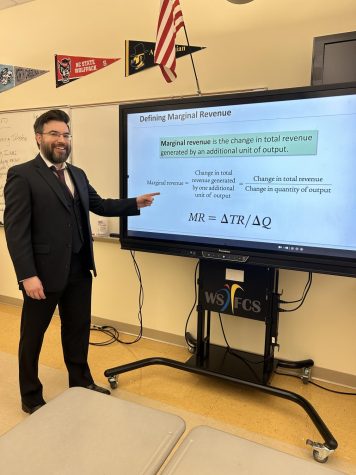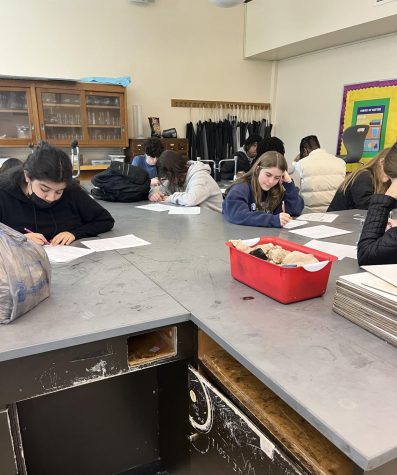New Chairwoman to Serve on School Board
February 23, 2019
By Eliza Carlton
For the first time ever, Forsyth County’s Board of Education will consist of of 9 female members, with an African American serving as chairwoman.
The election of chair Malisahi Woodbury and vice chair Barbara Hanes Burke, both democrats, would not have been possible without votes from Republicans Lida Calvert Hayes and Leah Crowley.
Members Clark, Jones and Motsinger were the three that chose not to vote for Woodbury or Burke. Instead, Clark and Motsinger nominated Jones, a Republican, to serve as chairwoman due to her previous leadership in the district.
However, the ultimate decision to elect Woodbury and Burke had less to do with politics and more to do with their experience. Woodbury teaches at N.C. A&T State University while Burke was previously an assistant principal at Carver High School.
Members hope that these two women’s experience as educators will benefit the counties school systems by putting the students education first.
Along with increasing teacher pay, Woodbury’s priorities include diversifying schools, decreasing the achievement gap, focusing on improving failing schools, lowering the suspension rates in minority students, and ensuring collaboration between parents and the community.
“I hope that by having educators serving as school board chair and vice chair we will be better positioned to make decisions based on what is best for students and teachers,” school board member Leah Crowley said.
The decision of the two Republican members to vote against party lines was not initially met with an entirely positive reaction from the public.
While there is less partisanship at the local level as opposed to the national level, it certainly continues to exist. Therefore, many Republican party members viewed Hayes and Crowley as “traitors” because of their decision to vote for two democratic members.
“Initially I did get some negative comments about voting across party lines,” Crowley said. “That subsided within a few days when I explained my reasoning – that having educators lead our board will help us solve the issues our district is facing, such as having only 50% of our third graders testing proficient in reading and math.”
Nonetheless, the ability of the school board to look past party affiliations in an attempt to improve the school system indicates a strong sense of unification among members, whose goals are the same: helping the counties school children in whatever ways possible.
“I don’t believe that any citizen in America can be neatly categorized as being in one party or the other 100% of the time,” noted junior Noah Gottlieb. “That being said, it’s really great to see members of our local government recognizing each other for their character and experience, and not the party that they’re affiliated with.”












